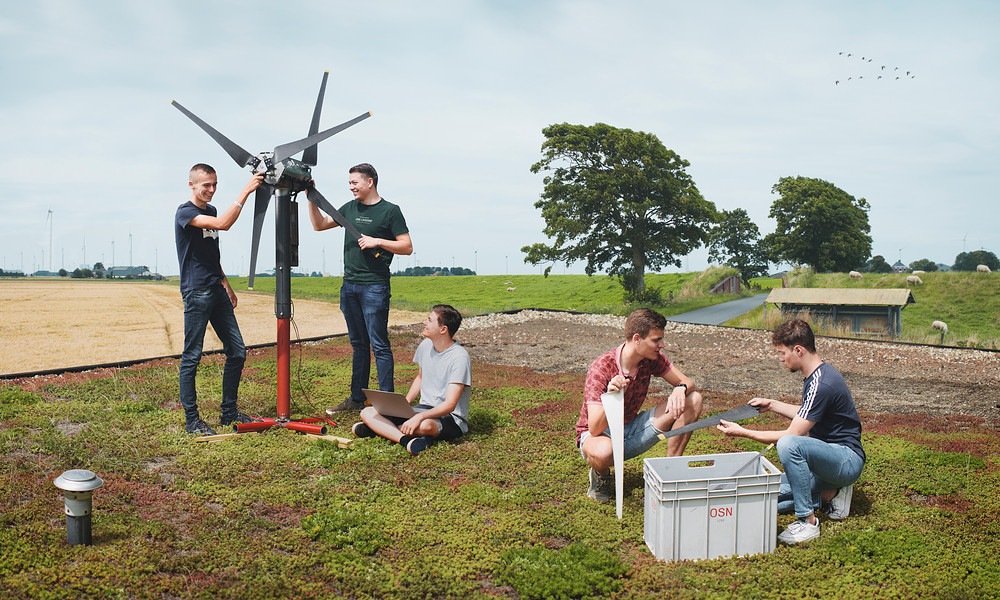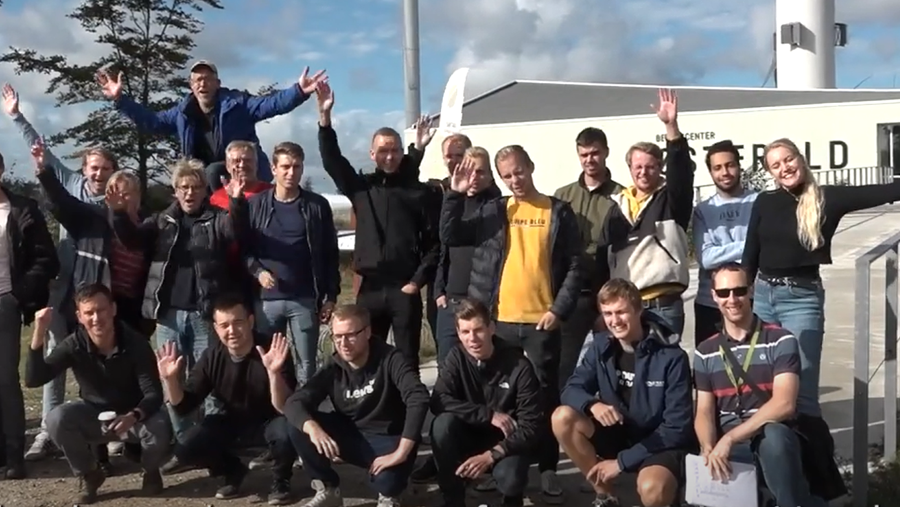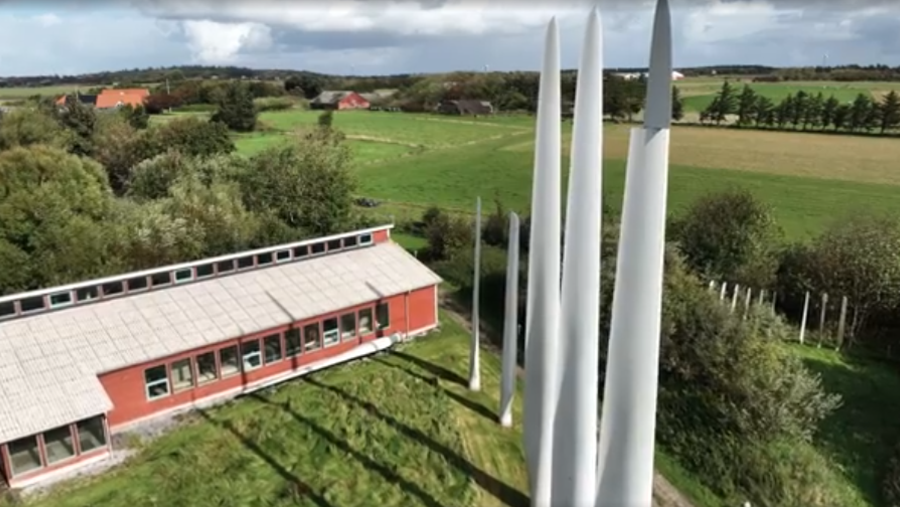Immerse yourself in on- and offshore wind energy!
- Minor
Immerse yourself in on- and offshore wind energy!

Are you interested in sustainable energy, such as hydrogen technology, electrical grid challenges, and particularly wind energy? Would you like to work on exciting projects with students from various engineering disciplines? Do you want to learn everything about onshore and offshore wind energy and join national and international excursions to both small and large wind turbine manufacturers? This is your chance!
During the minor Wind Energy meets Hydrogen, you will deal with various themes that play a role in the offshore and onshore wind industry. For example; the design, construction, operation and maintenance of relatively small to very large wind turbines. You will learn about wind turbines with a horizontal and vertical axis, about the challenges surrounding electricity networks and how to deal with the varying energy yield of wind energy. We'll also take a trip into hydrogen technology and look at how you can use hydrogen as a buffer alongside wind energy.
We introduce you to theory about turbine blade aerodynamics, the conversion to electricity, but also the challenges this poses to the electricity network. We will also bring you into contact with various large and small companies in the rapidly changing market in offshore and onshore wind energy. We are looking for ambitious students who want to roll up their sleeves and learn about renewable energy and wind turbines.

The Wind Energy meets Hydrogen programme has been developed in cooperation with Groningen Energy Transition Center (ENTRANCE), companies, and knowledge and research institutions. The programme is currently divided into 4 modules:
We have projects with partners from the wind turbine market, but students can also propose their own projects. In addition, this module includes the micro-wind turbine challenge, in which students build their own micro-wind turbine that is tested in our small wind tunnel. The student who can generate the most and most efficient electrical power will be the winner of this challenge. But also the production of hydrogen at lowest wind speed will be a challenge that can be won.
For other student projects related to wind, you may also want to check out the International Small Wind Turbine Contest. This contest is organized separately from the minor but can serve as an inspiration for the projects we work on within the minor.
| Introduction Wind Energy & Hydrogen | 5 ECTS |
| Safety, Management and IO&M | 5 ECTS |
| Design and Realisation | 5 ECTS |
| Development, Implementation and Professionalisation | 15 ECTS |
Take a look at the ECTS course catalogue for more information.
Please note that the schedule for this programme may vary from week to week. The programme is intensive and students who apply for this programme are expected to be available and present for the whole duration of the programme. Students are also expected to do the whole programme of 30 ECTS credits.
Costs of excursions: € 100,- personal contribution for the week excursion to Denmark. Additional costs may apply for voluntary excursions. If you would like to do a SCC exam via the Hanze, you will need to finance this as well.

You can apply for this programme if you meet the following requirements:
Do you not meet the requirements, but would like to take the minor and do you have technical affinity? Please contact us and we will look at the possibilities!
Are you a student of the Hanze University of Applied Sciences and do you want to apply for this programme? You can apply through Osiris.
Are you a student of a different university of applied sciences in the Netherlands, you can apply for the programme through the website Kies op Maat.
Onderzoeker
Zernikelaan 17, 9747 AA Groningen
How satisfied are you with the information on this page?